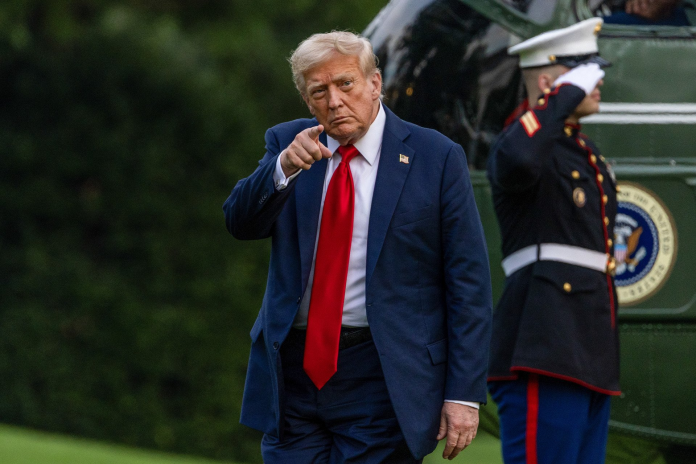The United States’ campaign to isolate Russia economically faces stiff resistance as key trading partners openly defy punitive measures targeting Moscow’s energy exports.
Despite Washington’s threats of 100% tariffs, both India and China have reaffirmed their commitment to safeguarding national interests through continued trade with Russia.
The confrontation reached a critical point this week when Stephen Miller, deputy chief of staff at the White House, singled out India during a Fox News appearance:
“What he [US President Donald Trump] said very clearly is that it is not acceptable for India to continue financing this war by purchasing the oil from Russia. People will be shocked to learn that India is basically tied with China in purchasing Russian oil. That’s an astonishing fact,” Miller stated.
Trump followed with a Truth Social post accusing India of profiting from Russian oil resales and threatening to “take their dead economies down together” with Russia.
However, India’s response was swift and uncompromising. Foreign Ministry spokesperson Randhir Jaiswal declared:
“Our bilateral relationships with various countries stand on their own merit and should not be seen from the prism of a third country. India and Russia have a steady and time-tested partnership,” Jaiswal said.
Behind this rhetoric lie serious economic considerations: Russia supplies 35% of India’s crude imports, worth $50.2 billion in the 2024-25 financial year, a dependency New Delhi calls non-negotiable for national stability.
China’s rare earth gambit
Parallel to India’s defiance, China has weaponised its dominance in critical minerals. Days after its Foreign Ministry stated in May that it would “resolutely defend sovereignty and development interests” against coercion, Beijing restricted rare earth metal exports to US defence contractors.
Analysts note the move underscores Russia’s emerging role as an alternative rare earth supplier, with one of the world’s most profitable deposits.
However, while sanctioning Russian energy buyers, the US continues importing Russian uranium for nuclear plants, palladium for electric vehicles, and fertilisers, a contradiction India’s policy makers highlight while justifying their stance.
Strategic calculus
India’s refusal carries significant risks. Trump’s tariff threats could cripple an economy increasingly reliant on US trade. Yet as former Indian Foreign Secretary Shyam Saran warned:
“Donald Trump was supposed to be good for India in his second presidency. He has turned out to be a nightmare. Submitting to his exaggerated demands, which are now political as well as economic, would severely undermine India’s national interests. We cannot give any country a veto over which countries India should or should not partner with,” Saran stated.
Despite publicly backing India’s Prime Minister Narendra Modi in February, Trump recently hosted Pakistan’s army chief at the White House and floated the idea of India buying Pakistani oil, a proposal viewed as insulting by Indian officials.
Meanwhile, Turkey and China—also major Russian oil importers—face no comparable threats.
In July, Petroleum Minister Hardeep Singh Puri stated that India could meet its oil needs from other sources if US sanctions disrupted Russian supplies. However, Moscow could retaliate by shutting the CPC pipeline from Kazakhstan to the United States, in which American oil companies Chevron and Exxon are involved.
Meanwhile, China’s Foreign Ministry posted on X after two days of trade talks in Stockholm that Beijing “will always ensure its energy supply in ways that serve our national interests.”
“Coercion and pressuring will not achieve anything. China will firmly defend its sovereignty, security and development interests,” the ministry declared, encapsulating the resolve of Moscow’s economic partners.
